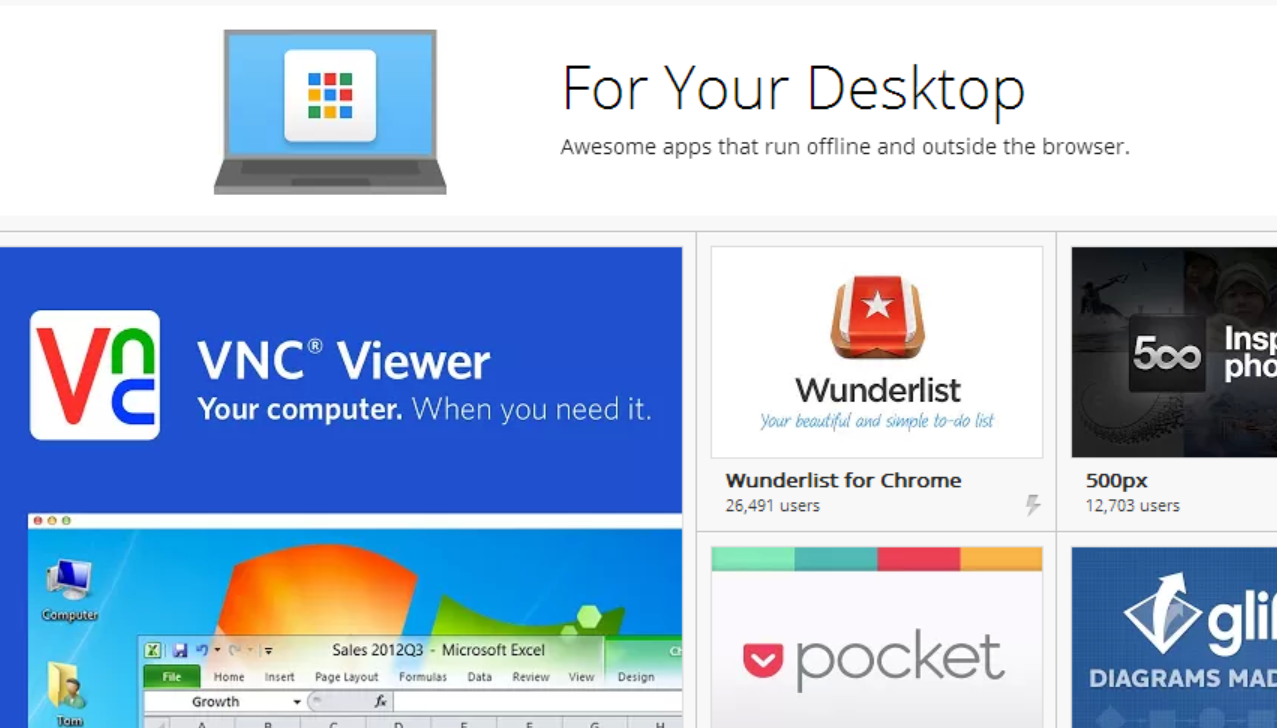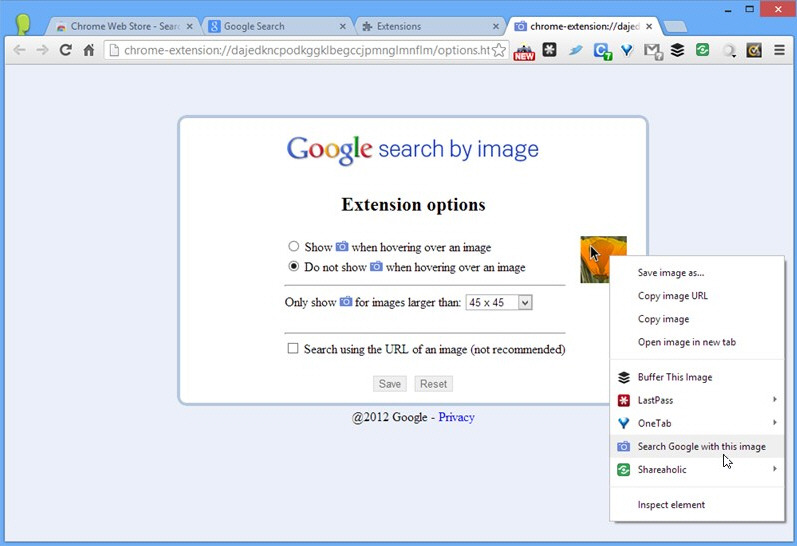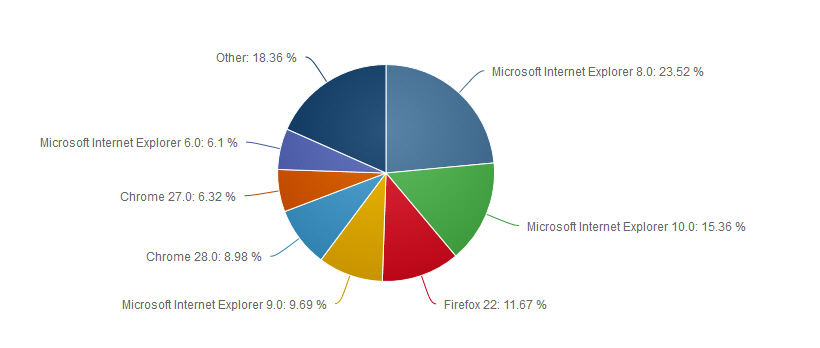
Google celebrates Chrome's 5th birthday with Apps for the desktop
Five years. That's how long it is since Chrome was unleashed on an unsuspecting world. Five years and we've already made it to version 29! There will undoubtedly be a few glasses charged in celebration, but Google is also taking this special date as an opportunity to reveal a "new breed of Chrome Apps". Head to the Chrome Web Store and you'll find a new section: For Your Desktop.
Working online with web apps has become increasingly common, but traditional desktop apps are still more popular. Now Google is looking to blur the boundaries between the two, making web apps much more like desktop software. The key thing to note here is that the apps that are found in this section do not -- after the initial download process of course - require an internet connection: they can be used in offline mode.

Google Chrome turns five -- Happy Birthday!
Kids and web browsers -- they grow up so fast these days. Seems like only yesterday that Google released its web browser to the public and set geek hearts aflutter with its speed and light footprint. Things have changed a bit, but many of us stick to the software as our browser of choice.
Google launched Chrome, in beta form, on September 2, 2008 for Windows only, and followed quickly with the source code as an open source project known as Chromium. The initial kickoff came in 43 different languages.

Linux environment Gnome fires Google over security concerns
I love Linux, it is no secret. Sure, I may stray to Mac and Windows every once in a while, and bash code-names, but I always come back to my first love; Linux. This week, I even had an argument with its creator Linus Torvalds over some measles, but even that can't stop my love.
My love for Linux, however, is very much focused on Fedora and Gnome3. And so, I am happy to see that Gnome has kicked Google to the curb as the default search engine for its Epiphany Web Browser (aka "Web"). Instead, it will use the privacy-focused DuckDuckGo.

Opera 16 adds form filler, new browser tweaks
Opera Software today announces the release of Opera 16.0 FINAL.
As you might expect, the new rapid release cycle means that major changes are in short supply, but look closely and there are one or two interesting additions to be found.
Google adds new 'reset to default' option to Chrome
If your current browser isn’t working as it should then you’ll appreciate the new "Reset browser settings" option (Settings > Advanced) Google has added to Chrome 29 FINAL. This restores the original default browser settings, while leaving apps, bookmarks and themes untouched.
As promised in the previous release, rich notifications (the system where alerts from apps and extensions can appear in a separate window, even when the browser isn’t running) is now available for Mac, as well as Windows. Check the Chrome 28 release post for settings guidance if this isn’t working for you.

The most popular stories on BetaNews this past week
Looking at the the biggest stories on BetaNews from August, 11 - 17, 2013. This week there has been a lot of Microsoft related news setting tongues wagging -- and it's been something of a rollercoaster. Early on in the week we got a sneak peak at what to expect in the upcoming Windows 8.1 update after a new build leaked online. Build 9471 includes a number of changes from the official Preview, including new tutorials, extra personalization options, changes to a few of the built-in apps and integrated Skype.
Not long after the leak version was discovered, Microsoft went on to talk about creating a unified experience across different Microsoft and Windows devices and services. And for anyone who is sick of the Windows 8.1 hype there was some good news -- the official release date is only a couple of months away, after which things should start to quieten down.

Internet Explorer is the latest browser to get the Adblock Plus treatment
It might come as a surprise, particularly if you are a Chrome, Opera or Firefox user, but Adblock Plus has not been available for Internet Explorer until now. Microsoft's web browser is the latest to gain the option to block advertisements. An experimental version of the plugin was released for IE a couple of months ago, but today sees the release of the official, final version.
The add-on has been a long time coming to Internet Explorer, and fans of the browser are likely to welcome it with open arms. If you've used the extension in other browsers, you'll have a good idea of what to expect -- although the name is something of a give-away.

10 things a Windows Phone 8 user misses about Android
Adopting Windows Phone 8, and ditching Android, was one of the most daring decisions that I have ever made in my entire tech life. I am the sort of person who does not warm up to major changes (not my strong suit), especially ones that involve transitioning between two polarizing mobile platforms. But, surprisingly, I gave up the flexibility and versatility of the green droid operating system for the glanceable information and simplicity of Windows Phone. Admittedly, it was not smooth sailing from day one.
The problem is that, in order to fully adjust to the change, something has got to give, namely features that I consider to be essential for a modern-day smartphone operating system. For some they may not matter as much, but others -- like me, and maybe you -- are likely to be left wanting for more. And, no, I am not talking about widgets, themes, root or Instagram (it, however, seems to be the tech media's favorite blaming toy even though there are good third-party alternatives), but rather more down-to-earth, mundane ones.

Firefox 24 Beta 1 reveals tear-off social windows, 'Close tabs to right' feature
Hot on the heels of its Firefox 23 FINAL release, Mozilla has launched updates to its beta and alpha channels with the launch of Firefox 24.0 Beta 1 and Firefox Aurora 25.0a2 respectively.
The biggest changes in play can be found in Firefox 24.0 Beta 1, with a number of noteworthy new features and improvements, including another update to its burgeoning social API with support for tearing off chat windows to view them in a separate, floating window.

Firefox 23 enables mixed content blocking, consolidates search settings
Mozilla has released Firefox 23.0 FINAL, the latest version of its open-source, cross-platform browser for Windows, Mac and Linux. The new build’s main highlight is the implementation of mixed-content blocking for improved security, but it also comes with a host of minor changes, including one that has already provoked a negative response from power users.
The controversial change is the consolidation of search default preferences so both Address bar and Search bar use the same default search engine. Previously Address bar searches defaulted to Google regardless of the default provider set in the Search bar.

Find images quickly with Google Search by Image
And Google decreed, "Let there be image search, a tool whereby mortals may search for images by providing a source image". And it looked, and the tool was rather useful in its own way, but horribly awkward to use at times when you had to right-click the image, choose to copy its URL to the clipboard, switch to Google Image Search, paste the URL into the correct box and so on.
So Google said, "I can’t be faffing about like this", and its bods developed a browser extension to make the process much simpler. And so Google Search by Image for Chrome 1.5.0 and Google Search by Image for Firefox 1.1.2, were born.

Choose which Flash content to see with FlashControl for Chrome
While there are plenty of irritations to be found online, few are quite as annoying as Flash ads. Distracting animations, irritating music, applets expanding over content you’re trying to read -- it’s really no surprise that many people install ad blockers on a new PC before they do anything else.
Some ads will still penetrate your defenses, of course. And legitimate Flash content may occasionally be just as annoying as the worst adverts. To fully protect yourself, then, you’ll need a more general content filter, like the Chrome extension FlashControl.

Internet Explorer remains three of the top five web browsers
Internet Explorer might no longer hold 96 percent of the browser market like it did back in 2002, but Microsoft’s browser still remains hugely popular. Firefox and Chrome took large bites out of IE’s dominance, but they have yet to topple it, and don’t look set to do so any time soon.
According to new figures from Net Applications, Internet Explorer 8 is the most popular browser on the desktop with 23.52 percent global market share. And it’s not the only incarnation of IE in the top five either.

IE11 improves touch experience in Windows 8.1
Internet Explorer is an integral part of Microsoft's tiled operating system, and the software giant has endeavoured to improve the way it handles touch in Windows 8.1, adding new touch elements and improving existing ones.
In a new blog post Microsoft discusses the changes it has made which, if you’re planning on using the OS refresh on a touch enabled device, you’ll likely find both interesting and welcome.

Is Twitter's introduction of an abuse reporting button really workable?
It is said that there is no such thing as bad publicity, but the PR department at Twitter might well be feeling otherwise at the moment. After coming under fire for using fabricated tweets in promotional material Twitter has been in the headlines after the company faced calls to do more to combat abusive tweets.
Threats of death and rape do not make for pleasant reading, but it is something that has happened to a number of Twitter users. The most recent victims to speak out -- Caroline Criado-Perez, who successfully campaigned for Jane Austin to appear on British bank notes, and UK MP Stella Creasy -- led to a grassroots campaign for Twitter to do more to police its micro-blogging service.
